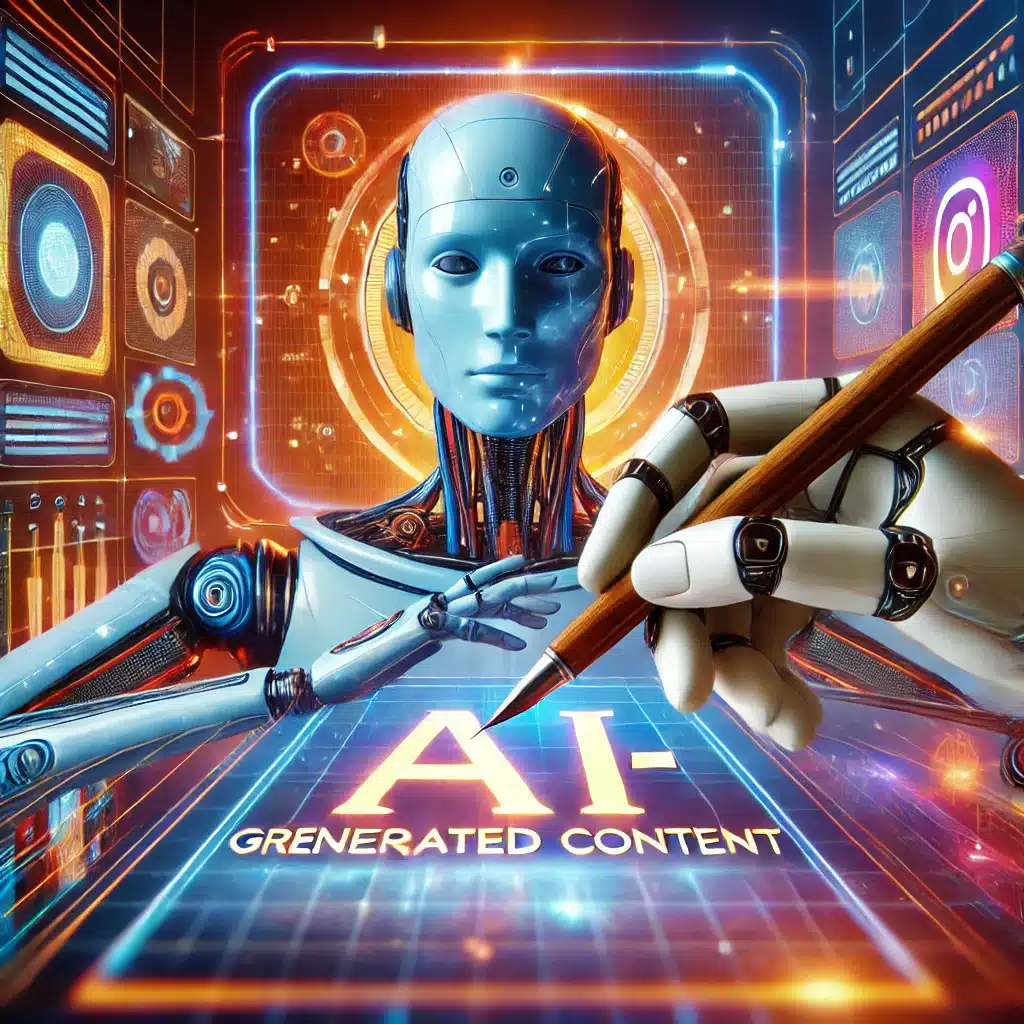Exploring the Surge of AI-Generated Content in Modern Media
In an era where content is king, the emergence of AI-generated content is revolutionizing the way we conceive, produce, and interact with digital media. This pivotal shift, powered by advancements in artificial intelligence and generative AI, is not only enhancing the efficiency of content creation but is also redefining the boundaries of creativity and personalization in media. The significance of this evolution extends across various sectors, from marketing and journalism to entertainment, highlighting its role in shaping future trends in communication and information consumption.
The Technology Behind AI-Generated Content
AI-generated content encompasses a wide range of outputs, from text-based articles to complex multimedia like videos and music. The core of this technology lies in machine learning algorithms, particularly those based on natural language processing (NLP). These tools analyze extensive datasets from various sources, such as books and articles, to grasp language nuances including grammar, syntax, and word choice. By doing so, systems like ChatGPT predict the likelihood of word sequences, effectively mimicking human-like content creation.
Generative AI, a subset of artificial intelligence, extends beyond text to include images, music, and video, learning from patterns in data to produce novel content. This capability has transformative applications across industries, enhancing everything from product design through generative algorithms to medical imaging and virtual reality, where it contributes to more realistic and engaging user experiences.
Historically, AI’s role in content generation has evolved significantly. Early AI systems were tasked with specific, narrow functions like playing chess or solving mathematical problems. However, advancements in machine learning and NLP have expanded AI’s capabilities. Today, AI not only generates simple text but also engages in more complex content creation, including personalized and optimized media for targeted audiences.
The integration of AI in content creation also involves significant human interaction, especially in the initial and final stages. Input from humans in the form of prompts is crucial for guiding AI to generate desired content. Post-creation, human expertise is essential to refine and contextualize AI output, ensuring relevance and accuracy.
Benefits of Using AI for Content Creation
Speed and Efficiency: AI significantly enhances the speed at which content can be created. Tasks like research, data analysis, and writing drafts are automated, streamlining the content production process. This not only speeds up content creation but also ensures timely publication.
Cost-Effectiveness: Utilizing AI reduces the need for extensive human input, saving on labor costs associated with content production. AI tools automate repetitive tasks, freeing up the creative team to focus on strategic tasks, proving economically advantageous.
Personalization: AI excels in creating personalized content by analyzing vast amounts of user data to understand individual preferences and behaviors. This allows businesses to tailor content to each user, enhancing engagement through personalized experiences.
Challenges and Concerns
Quality Issues: AI-generated content can struggle with coherence and relevance, often producing material that lacks logical flow or contains factual inaccuracies. These quality issues can affect the reliability and effectiveness of the content.
Bias and Discrimination: AI systems can perpetuate existing inequalities, as biases from training data reflect societal or historical inequities. This poses significant challenges in ensuring fairness and mitigating discriminatory outcomes.
Job Displacement: The rise of AI in content creation raises concerns about potential job displacement. As AI automates routine tasks, traditional roles like journalists and content writers face the risk of redundancy, emphasizing the need for new skill sets.
The Future of AI-Generated Content
Emerging technologies like AI-powered virtual and augmented reality are transforming the landscape of AI-generated content and redefining media consumption. These immersive and interactive experiences significantly boost user engagement.
In social media, AI’s role in content moderation is becoming increasingly crucial, contributing to safer online environments. However, balancing personalization with ethical AI implementation will be critical to prevent potential harm and misinformation.
Sophisticated AI tools will reduce human involvement in content creation, making the process more efficient while raising questions about authenticity and ethical implications.
Despite challenges like job displacement, integrating AI in media enhances the creative process and opens new opportunities in media and entertainment.
Conclusion
The transformative potential of AI-generated content across various sectors of modern media is undeniable. From enhancing efficiency to pushing the boundaries of creativity and personalization, AI presents a promising horizon for digital media, albeit with challenges. Ethical considerations, quality assurance, and the balance between human creativity and AI’s capabilities remain central to this evolving dialogue. As we embrace this technological advancement, navigating these waters with a blend of innovation and responsibility is crucial for ensuring that the future of content creation benefits from AI’s potential while mitigating its pitfalls.
Looking ahead, the implications of AI-generated content extend far and wide, signaling a significant impact on how information is crafted and consumed. The collaboration between humans and AI, coupled with continued efforts to refine this symbiosis, will shape the future trajectories of media industries. By fostering a landscape where technology enhances human creativity rather than replaces it, we can unlock new levels of personalization and engagement in content creation. As we venture into this new era, the emphasis on ethical practices, ongoing research, and the development of complementary skill sets will be instrumental in fully leveraging AI’s contributions to modern media.

